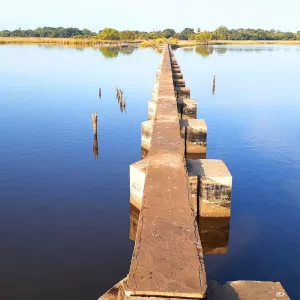Integrating grey and green water infrastructure for inclusive sustainable development
In 1957, Karl Wittfogel hypothesized that the emergence of human civilization is linked partially, but importantly, to the management of water to grow food. In this hypothesis, the development of irrigation infrastructure, and the institutions needed to manage that infrastructure, were critical to the development of complex, organized societies in the Middle East and elsewhere. Today, building large dams, and other

Integrating grey and green water infrastructure for inclusive sustainable development
In 1957, Karl Wittfogel hypothesized that the emergence of human civilization is linked partially, but importantly, to the management of water to grow food. In this hypothesis, the development of irrigation infrastructure, and the institutions needed to manage that infrastructure, were critical to the development of complex, organized societies in the Middle East and elsewhere.
Today, building large dams, and other water control infrastructure (known as “grey infrastructure”), continues to be a cornerstone of economic growth and development. Investment in grey infrastructure, much of it in low-income countries, is widely acknowledged as essential for achieving the Sustainable Development Goals and adapting to climate change. However, there is also growing recognition that to be sustainable, the development of water infrastructure needs to change.
Image credit: Matthew McCartney/IWMI

